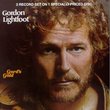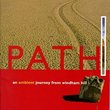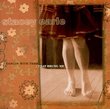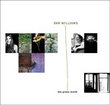| All Artists: Mary Coughlan Title: After Fall Members Wishing: 0 Total Copies: 0 Label: V2 Original Release Date: 8/12/1997 Release Date: 8/12/1997 Genres: Folk, International Music, New Age, Pop, Rock Style: Adult Alternative Number of Discs: 1 SwapaCD Credits: 1 UPCs: 792618182321, 5033197000923, 792618182345 |
Search - Mary Coughlan :: After Fall
 | Mary Coughlan After Fall Genres: Folk, International Music, New Age, Pop, Rock
Mary Coughlan is the Irish version of Marianne Faithfull--a woman who has not only survived destructive entanglements with drugs, alcohol, and men but has also poured that past into a dark, wounded alto that gives every so... more » |
Larger Image |
CD DetailsSynopsis
Amazon.com Mary Coughlan is the Irish version of Marianne Faithfull--a woman who has not only survived destructive entanglements with drugs, alcohol, and men but has also poured that past into a dark, wounded alto that gives every song the mark of experience. After the Fall is her first American release, but it's her eighth album in Europe where she has been a mid-level star since 1985. It's her first studio project since she sobered up in a Dublin rehab center in 1993, and it brims with the confidence of a woman who has finally gotten control of her voice and her life at age 40. There's a bit of traditional Irish folk music in Coughlan's voice, but it's a slight influence compared to the heavy sway of American blues, jazz, and cabaret which make her sound so much like late-period Faithfull. These black flavors are useful in Coughlan's caustic views on the relationships between men and women, for she is as blunt and irreverent when she's sober as she ever was when she was juiced. She cowrote only two of the 11 numbers, but all the songs reflect the consistent attitude of a woman who has seen through the facade of romance and can't unlearn the lesson. Coughlan and Johnny Mulhern wrote "Run Away Teddy" about a man with a commitment problem, and rather than just wash her hands of him, her growling blues-rock voice tries to bend him to her needs. Mulhern also wrote "Lucy's Dream," a witty tale of a bored wife who finds refuge in sexual fantasy. Like Mulhern, Jimmy McCarthy is one of Ireland's best songwriters, even if he's barely known in America. McCarthy and Coughlan wrote "Still in Love," a riveting piano ballad about a survivor's right to optimism despite a thousand defeats, and McCarthy wrote "That Face," a harrowing confession about the difficulty of giving up drinking. --Geoffrey Himes Similarly Requested CDs
|
CD ReviewsGreat, but Other Albums Better 04/23/1999 (4 out of 5 stars) "Mary Coughlan is a gem--I first heard her when I was living in London 10+ years ago and have since purchased all of her albums as imports, as she was (until very recently) almost completely unheard of in America. I thought this, her first US release, had some great songs: Sunburn is a hilarious tale about a tourist and The Black Crow has a great Klezmer sound. But her best work is on her other albums not released in the US, especially the superb "Sentimental Killers." Her first album, "Tired and Emotional" is also well worth hearing."
|

 Track Listings (13) - Disc #1
Track Listings (13) - Disc #1








